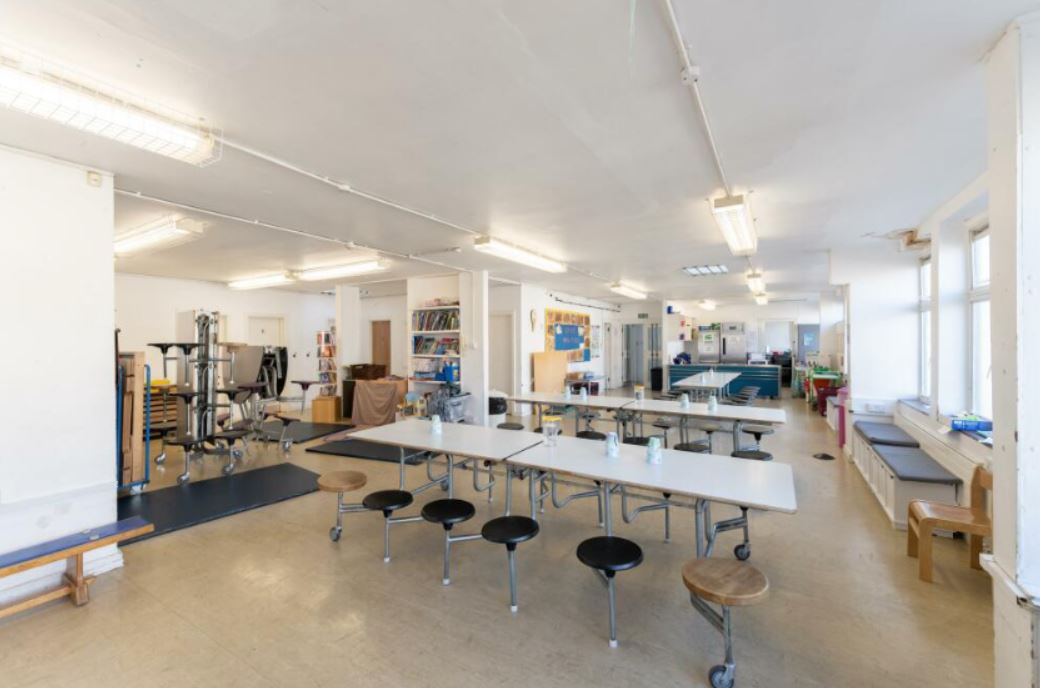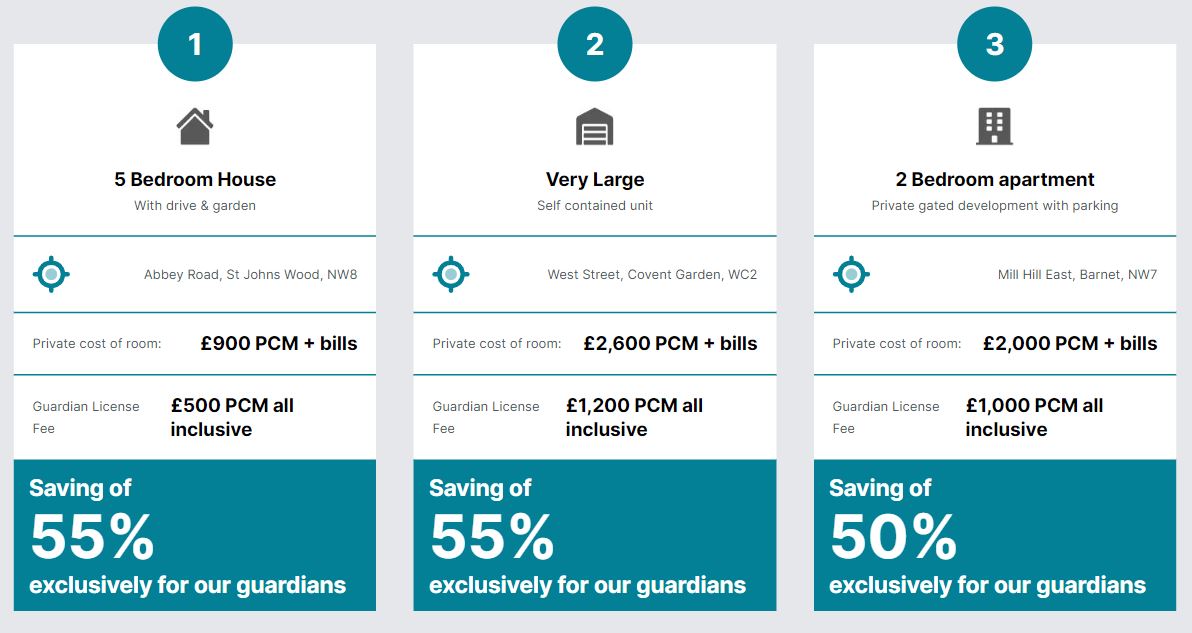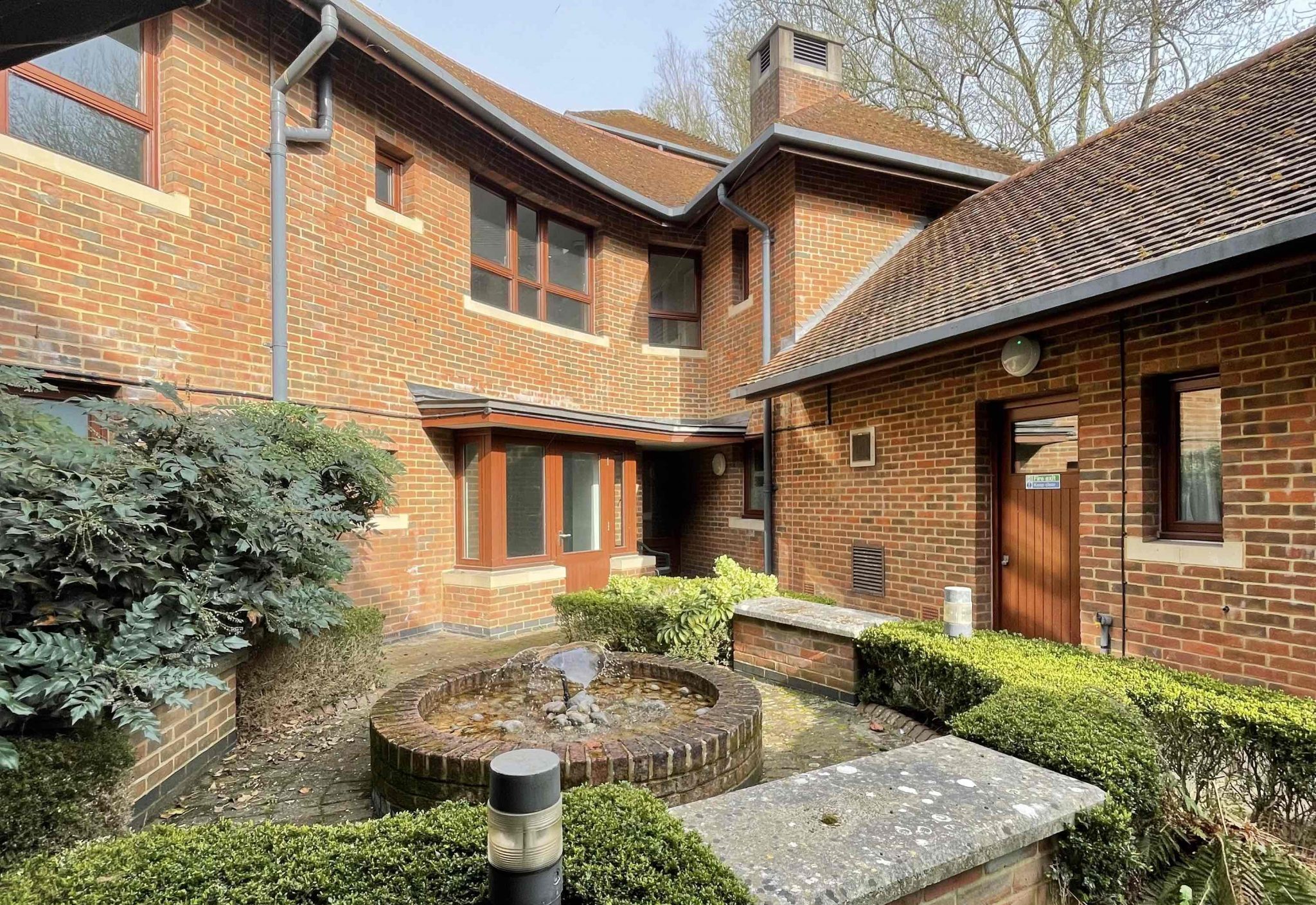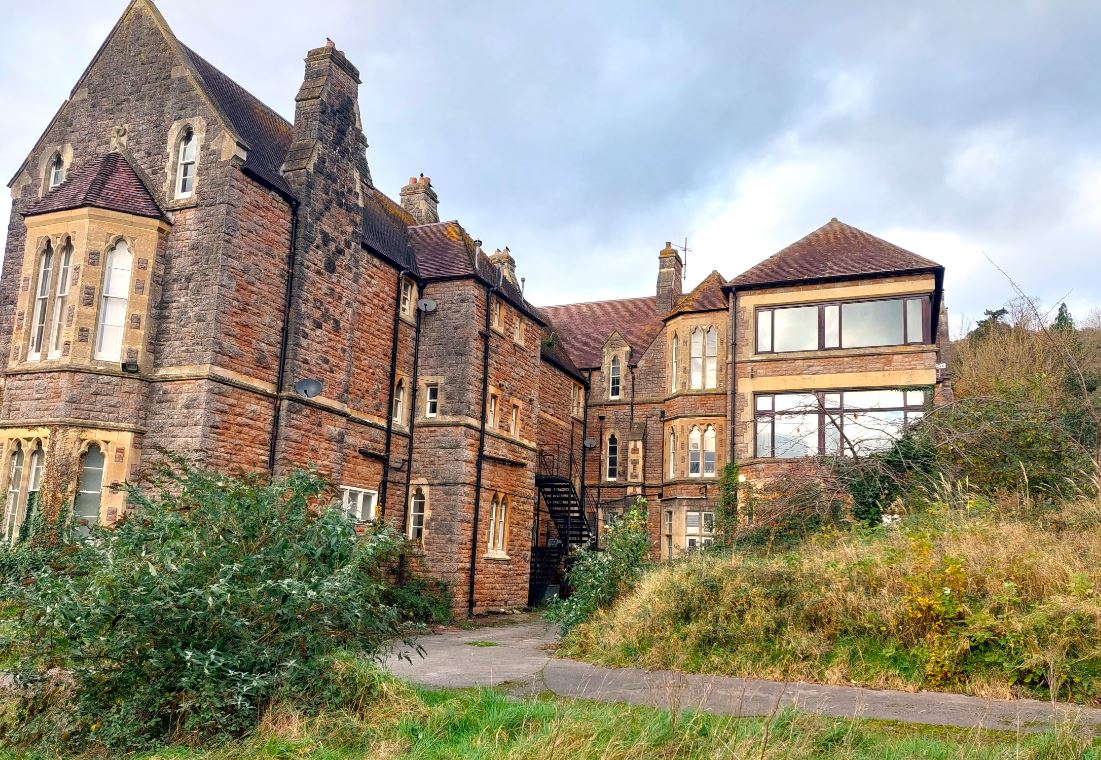The cost of living crisis means that rent is becoming unaffordable for many people. If you’re looking for alternative ways to live more cheaply, becoming a property guardian might be for you.
Property guardianship means that in exchange for cheaper rent, you’ll ‘guard’ buildings that would otherwise be unoccupied to keep them safe from damage. These buildings can be flats and houses, or commercial buildings like abandoned hospitals or nursing homes.
But is it worth being a property guardian for the cheaper rent? Let’s get into the details of the property guardian scheme as well as its pros and cons.
What is a property guardian?
A property guardian lives in (sometimes unusual) buildings in exchange for lower rent. The point of a guardianship is to keep a property occupied, safe from damage, and prevent squatters.
These buildings can be residential properties, but are often commercial properties as well. This means you’ll find everything from former police stations and hospitals to schools, offices, banks, and pubs listed for guardianship. With larger buildings, it’s likely you’ll be sharing with several other guardians, too.
Landlords want someone to ‘guard’ their property by living in it for cheap. This means the property guardian gets a rate below market rent and the landlord has someone occupying an otherwise vacant property.

Blue Door Properties listing in former primary school
An important difference is that guardians are not tenants. Instead of a rental contract, you’re taking out a licence to occupy, and the notice period can be as short as 28 days.
How much cheaper is it?
You can expect to pay anywhere from 30% to as much as 60% below market rent. In expensive cities like London, this is a highly attractive alternative to the rising rent prices.
You might still be liable to pay utility bills and council tax, but this is dependent on the guardianship. Sometimes bills are included in the weekly or monthly price, as listed below.

Blue Door Properties
Who is best suited to property guardianship?
All sorts of people are attracted to property guardian schemes, especially those looking for cheap rent and flexible living.
Common professions for property guardians are key workers, post-graduates, freelancers, and creatives. Many guardianship companies will seek out people with these types of jobs that are more suited to moving around.
Since guardianships can often involve living in a large property with as many as 30 people, it’s often more attractive to younger people who are used to shared housing arrangements.
Why creatives?
As some of the commercial spaces are quite large, it’s ideal for setting up your own studio or creative rooms. Nursing homes and primary schools can provide the perfect areas for photography, music, painting, and writing. Other guardianships have banded together to create a vibrant communal indoor space, patio, or garden.
Guardians need to be over 18 (sometimes 21 or 25) with a minimum annual salary specified by the company. Since monthly costs are a lot lower, salary expectations are more reasonable; we’ve seen £18K minimum for London properties.
There are lots of reasons people want to become a property guardian: temporary and flexible living agreements, saving for a deposit, community living, or simply unaffordable costs of private renting.
While you can live as a guardian for years on end, most properties have a shelf life of six to eight months. But you should always be prepared to be given notice in as little as 28 days.
You might like: A guide to private renting in the UK: tenants’ rights in 2025
Your responsibilities & rights as a property guardian
There’s a bit more to property guardianship than simply getting cheap rent for occupying an old building. Your licence agreement will come with a list of responsibilities – much like a rental agreement – that revolve around keeping the property secure. Here’s a quick rundown of what you’ll be expected to do.
Responsibilities
Rights
General occupation achieves this, but you should also keep good security practices like locking doors and windows.
Any anti-social behaviour in the area should be reported, especially if it could affect the building. Any issues within the property like bad plumbing, faulty electrics, and mould should be reported as quickly as possible.
You may be required to pay utility bills separate from your licence agreement.
All properties should have hot water and plumbing working order for bathroom and kitchen use and there should be working electrics with no faulty wiring. Annual checks on gas appliances and fire safety devices should be done and up to date.
You have a right to a dwelling that is safe and secure, which means working doors and windows, up-to-date smoke alarms, and no active mould issues.
Any building you’re living in should have adequate heating, whether that’s central heating or storage heaters. You are entitled to adequate insulation – such as loft insulation and window glazing – although this can be down to interpretation so it’s something you should check yourself. Living in larger spaces like schools or warehouses can mean colder winters, which is something to consider. Ask to see the EPC rating (which isn’t obligatory on a guardianship licence).
Property guardians do not have exclusive possession of their space, meaning the property owners have right of entry when they want. Any visits or inspections should be notified in advance and someone will knock before they enter. If no one answers, they are legally allowed to enter.
Responsibilities
General occupation achieves this, but you should also keep good security practices like locking doors and windows.
Any anti-social behaviour in the area should be reported, especially if it could affect the building. Any issues within the property like bad plumbing, faulty electrics, and mould should be reported as quickly as possible.
You may be required to pay utility bills separate from your licence agreement.
Rights
All properties should have hot water and plumbing working order for bathroom and kitchen use and there should be working electrics with no faulty wiring. Annual checks on gas appliances and fire safety devices should be done and up to date.
You have a right to a dwelling that is safe and secure, which means working doors and windows, up-to-date smoke alarms, and no active mould issues.
Any building you’re living in should have adequate heating, whether that’s central heating or storage heaters. You are entitled to adequate insulation – such as loft insulation and window glazing – although this can be down to interpretation so it’s something you should check yourself. Living in larger spaces like schools or warehouses can mean colder winters, which is something to consider. Ask to see the EPC rating (which isn’t obligatory on a guardianship licence).
Property guardians do not have exclusive possession of their space, meaning the property owners have right of entry when they want. Any visits or inspections should be notified in advance and someone will knock before they enter. If no one answers, they are legally allowed to enter.
Is it worth it? Pros & cons
It’s important to do your due diligence if you’re thinking of becoming a property guardian. We’re not going to sugarcoat it; there are plenty of downsides.
Pros | Cons |
|---|---|
Save 30%-60% on rent cost | 28 days' notice period |
Not tied to a lengthy contract | Temporary living only |
Licence through a company who will ensure the building is in proper condition | There are fewer rules on building maintenance compared to private renting |
Live in unusual buildings | Less conventional to furnish |
Commercial properties mean much bigger spaces | Can be harder to heat |
Live communally with like-minded people | Fewer rights compared to private renting, like no deposit protection |
Great spaces for creative people | Right to entry for agencies |
Can live in expensive cities more affordably | Maintenance is less of a priority and repairs can be shoddy |
When property owners list a building with an agency, the agency is in charge of getting the property into shape. This includes proper safety and security regulations, ensuring working appliances, re-painting, and sometimes even furnishing.
However, this isn’t always the case, and you’ll find plenty of horror stories online of rundown properties that aren’t worth the cheap rent. Sometimes the buildings are set to be demolished after the guardianship term is over, so repairs and maintenance are not prioritised or dealt with in the best way (read: landlord special to the extreme).
We spoke to former property guardian Louise on her experience in London.
I moved to London knowing rent prices were a lot, so I considered a guardianship. I’ve had a lot of experience of unusual living situations, so it seemed like a suitable option for me.
I ended up paying £900 pm to live in a converted toilet in an old nursery that I shared with 10 strangers.
I didn't know the room was a WC until I moved in and realised there were toilet bowls and cubicle holes on my floor with frosted windows.
My whole experience with the company was just a nightmare, mostly because of their communication; nobody knew the answer to anything and it took days or weeks to get a reply. Our shower was broken for five months and they turned our heating off when it was freezing and my plants died.
They wouldn't let us paint the walls or hang up pictures in the hallway and I got more and more depressed living there.
My main issue is that I knew there would be downsides to living in a guardianship, however, the price is supposed to reflect this – £900 for what I was living in was obscene.
It absolutely is not worth it, they are advertising themselves as a solution to the rent problem, but actually they are adding to it, and taking advantage of desperate people.
Louise
Former property guardian
How to become a property guardian
Property guardianships are most popular in cities like London, Manchester, Bristol, and other major cities. If you’ve got this far and you’re still interested, here are the steps for applying to become a property guardian.
1. Apply to guardianship companies
There are agencies that specialise in property guardianships you can apply to. Find agencies that serve the area you’re looking for, and apply to as many as you can. Here are few to consider:
- Blue Door Property Guardians: properties within the South of England
- dotdotdot Property: nationwide, with a focus on London
- adhoc Property: nationwide, mostly major cities
- The Lowe Group: London, Brighton, Winchester, Croydon
- Live-in Guardians: southern counties and a large focus on London
2. Provide appropriate documents
Just like renting, you’ll need to provide certain documents, such as ID, right to rent, proof of employment, proof of adequate funds, and sometimes a DBS certificate.
3. Wait for approval
Once you’ve applied, wait for the agency to get in touch and let you know if you’ve been successful or not. Priorities are often given to key workers, so it can be a good idea to apply to more than one agency, if you're not a key worker.
4. Find a property
After being accepted by a guardianship company, browse their available properties to find listings that suit your location and budget. Register your interest in viewing the property.
5. Attend viewings
Take plenty of photos and ask lots of questions, making sure you know what your rights are. Pay particular attention to heating, doors and windows, check taps and toilets, and signs of damp or mould. If there are any areas you’d like to be fixed or changed before you sign, point them out.
6. Sign your licence agreement
If you’re happy to go ahead with your property, sign the licence agreement and move in!
Here are some examples of available properties we found online:




FAQs
Got a few more questions? We’ve got you!
 Can you register to vote?
Can you register to vote?
Yes, property guardians can register to vote using their current address. Register online in just a few minutes, but make sure you update it when you move out.
 What is the minimum guardianship term?
What is the minimum guardianship term?
There is no minimum term for guardianship, although some agreements can have a fixed term, such as four to six months, which will be outlined in the listing.
 Can you be evicted?
Can you be evicted?
The landlord can ask for the property back at any time, and via your agency you’ll be given 28 days’ notice to leave. This is written in your licence agreement, so it’s not technically an eviction.
 What should you look for at a viewing?
What should you look for at a viewing?
Properties can vary wildly on the types of buildings, so you’ll need to be on the lookout more than at a normal flat viewing.
Make sure you have adequate heating, insulation, plumbing, and security within the property. Check that doors and windows open and close, taps run and toilets flush, lights turn on, the boiler produces hot water, and cleanliness levels.
Sometimes there will be guardians already living in the property, so it’s a good idea to ask them questions. Enquire about the living conditions, how long they’ve been there, and if there are any issues.
 Are properties furnished?
Are properties furnished?
Some are and some aren’t. There may even be different levels of furnishings, with minimal pieces like sofas and beds but no storage units.
 Who will I be living with?
Who will I be living with?
It all depends on the property. If you’re licensing a one-bedroom flat you’ll be by yourself, whereas a mid-sized nursing home could house as many as 30 people at a time.

The Lowe Group - former assisted living property
 What condition will it be in?
What condition will it be in?
Choose your property guardian company carefully to ensure they transform unoccupied buildings into suitable living conditions. Check their website to get an idea of the kind of maintenance they undertake before getting guardians in.
Some agencies may spend thousands on a complete overhaul, including repairs, paint jobs, cleaning, and part-furnishing. Others may do the bare minimum, so it’s up to you to do your due diligence and ask plenty of questions.
 Can you have guests?
Can you have guests?
This is something you’ll need to check with your agency and agreement. Usually, you can have guests visit, but agreements may vary about overnight guests. Having a partner stay regularly may be against the rules, and if you’re sharing with other people, they could report this.
 Can you have pets?
Can you have pets?
No, most guardianship agreements are pretty clear about no pets within the property.
 Can you be a guardian with a partner?
Can you be a guardian with a partner?
Yes, but your partner will need to apply with all the same documents and be accepted first. You will both be treated as separate guardians under separate agreements.

Property listing from AdHoc Property
Worth the watch?
Property guardianship can be a big risk in terms of stability and what you’re getting back for cheaper rent. But for those with the flexibility, in need of temporary accommodation, and wanting to live in expensive cities, it can be worth it for the short term.
As long as you are fully aware of your rights, do your due diligence, and take property guardianship for what it is, you can make the most out of it.
Listings that specify a fixed term might be more beneficial, but you should always be prepared to be given a 28 days’ notice at any time.
We recommend having a goal in mind if you’re thinking of becoming a property guardian. Whether that’s a set time like six to 18 months, or a savings goal. In general, property guardianship is not a long-term living situation.
Are you interested in becoming a property guardian? Let us know your motivation for doing so in the comments below.

 Get £15 cashback for joining TopCashback
Get £15 cashback for joining TopCashback